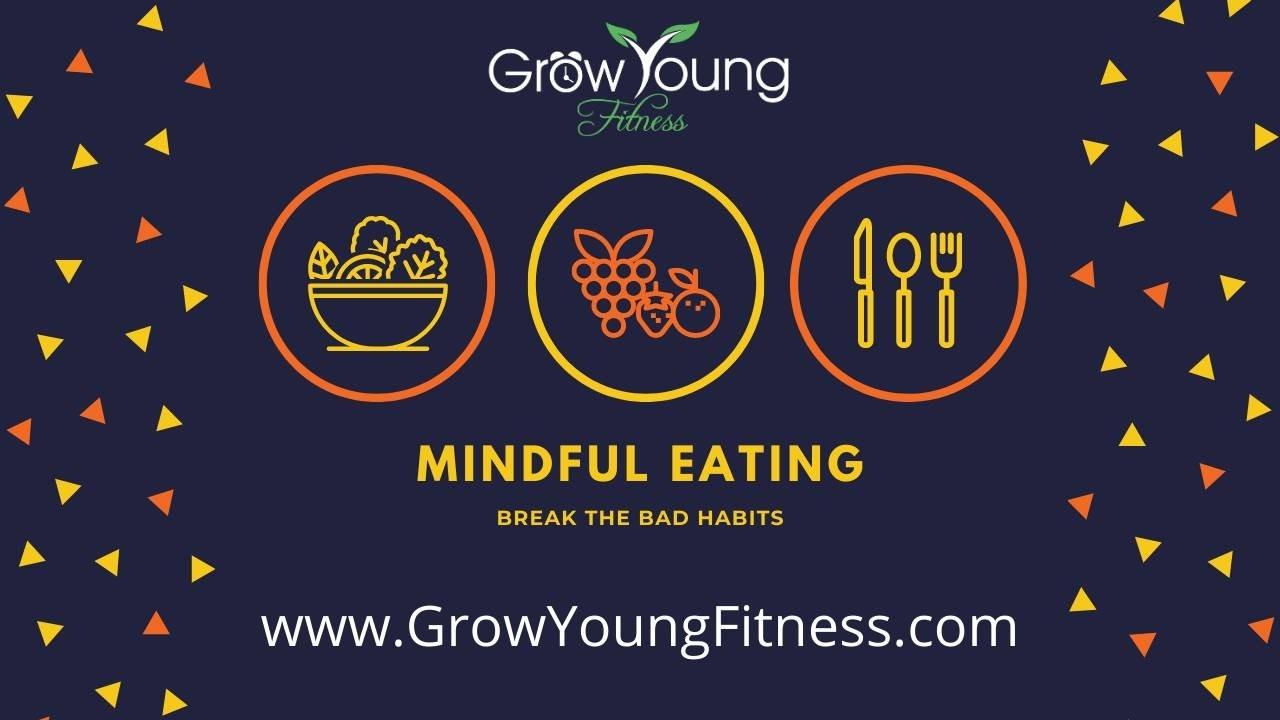Mindful Eating (Breaking the bad habits.)
Oct 06, 2020
How to Start Eating Mindfully
Do you find yourself eating on the run or even multitasking while you eat?
Tip of the day: NEVER eat in front of the TV. This becomes a habit that is hard to break.
If you do eat in front of the TV, make it a mission to stop.
So many of us lead busy lives, which means that taking time out of our day to sit and enjoy a meal isn’t always a huge priority. However, before you know it, unhealthy eating habits can set in. Incorporating mindfulness into a busy routine can bring many benefits, even in how you eat each meal.
Eating mindfully is a great habit to learn to prevent these unhealthy eating patterns from becoming a routine. It is important to develop a healthy relationship with food.
Mindful Eating—
Mindful eating is a set of strategies that can help you to eat with intention and attention. It helps to really focus on what you are eating. When you eat mindfully, you become aware of how food looks, smells and tastes. Eating mindfully may involve paying attention to why you feel like eating, what you are eating, and how you feel after eating it.
Benefits:
There are a number of advantages to mindful eating. When you consciously focus on how you eat, it can help you to find enjoyment in eating, among other great benefits.
When you eat mindfully, you will:
- Learn to listen to your body and identify how food makes you feel.
- Encourage yourself to really taste the food you are eating so you may find new flavors you enjoy.
- Learn to identify when you start to feel full which will reduce the chance of overeating and assist with portion control.
- Encourage you to chew your food thoroughly, which can be helpful for the digestive process.
- Help your mindset while eating which can reduce emotional eating.
Mindful eating is not a fad or a diet. It is about developing a healthy attitude towards eating, trying to connect with the food you eat, and how it affects your body and your wellbeing.
Example: If you eat a carton of cookies or a bag of chips, more than likely you will feel less energetic and your stomach may not feel very good. Take a note of that so next time, you remember that you don’t want to feel bad/guilty for doing it.
Tips for Mindful Eating:
Eat when you are hungry
Some days you may be starving and want to eat early because you had a tough workout. While other days, you might wake up late and decide to push your meals back to later in the day. Pay attention to your body and the signs it gives you when you are actually hungry. You will learn to identify the way your body signals it is hungry meaning you can become less likely to eat out of boredom.
Have an eating routine
Don’t worry if you struggle to keep a regular meal time because of shift work or family commitments. This step is less about the time of day you eat and more about how and where you eat. Removing yourself from distractions and focusing on what you are eating is a big part of being mindful. For example, if you tend to eat while watching TV, try moving to a table away from the living room. You will be more likely to enjoy your food and find it more satisfying when you are focused on it. Set aside time for meals where possible and try to eat in a relaxed environment. Doing this will allow you to focus on the meal in front of you and less on being distracted and overeating in front of the TV.
Eat slowly and pay attention to your senses
Eating mindfully means you’re engaging your senses. Pay attention to how your food looks and smells. As you take a bite, pay attention to the texture of the food and think about how it tastes. Try to savor the taste of the food. You might discover some new flavors you enjoy, which can open up many new possibilities for other meals too.
Put your utensils down
Next time you eat, try to put your utensils down between mouthfuls. You are more likely to chew your food thoroughly, which allows for better digestion and this will give you time to assess whether you are becoming full.
Enjoy your meal
The most important factor to remember about mindful eating is that you should be present when you eat. Avoid distractions while eating which often times lead to overeating.
Overeating is the #1 thing most people get wrong. If your mind is focused on something else while you eat, you don’t notice the signs that you really are full.
The whole “If it is on my plate, I must finish it” theory is not a good one. If you are full then you are full. Put the leftovers aside and finish them later.
Practice:
When you first try to eat mindfully, you may find it a little bit difficult. This is normal, as changing your behavior and eating habits takes time. Don’t try to be perfect, simply find a way to eat mindfully that works for you.
Pick a couple of healthy recipes that offer color, flavor and texture. This can make it easier to really pay attention to what you are eating. Once you get into the habit of mindful eating, you will notice how enjoyable it is.

